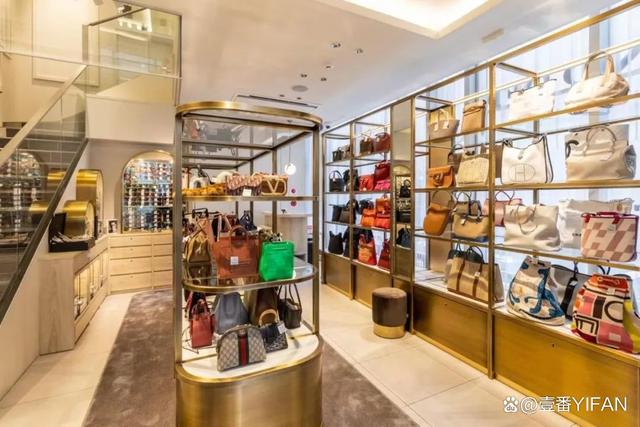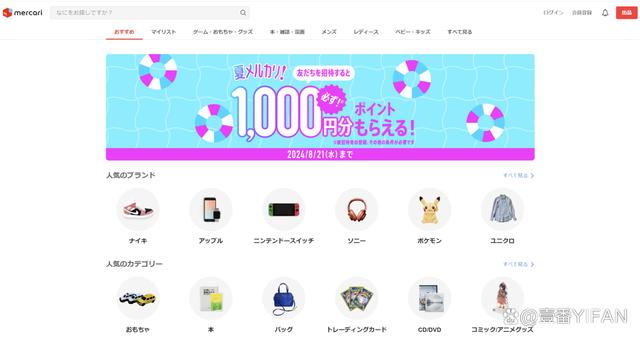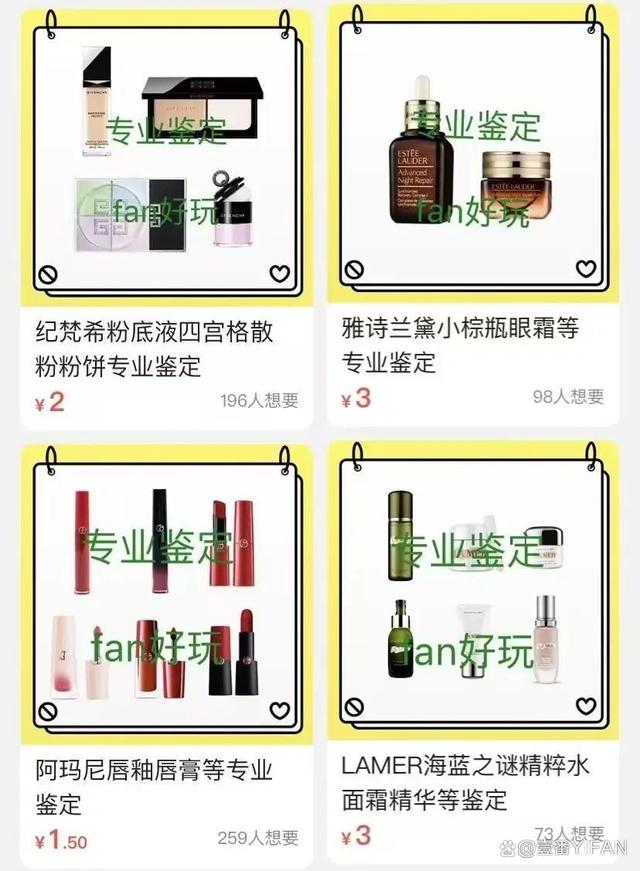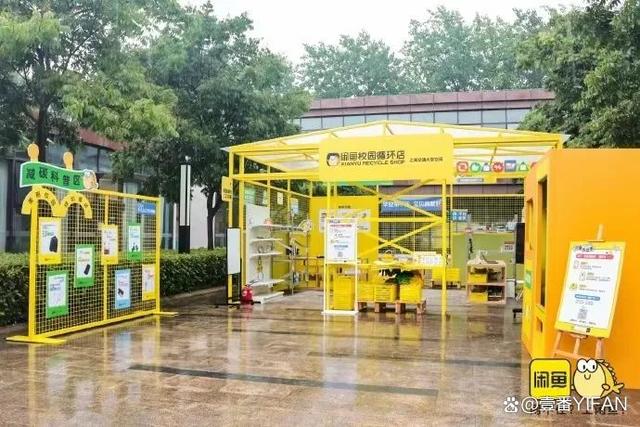Idle Fish urgently needs to fill in the "Second-hand Sutra"
![]() 08/08 2024
08/08 2024
![]() 681
681



Welcome to read the "Second-hand Consumption" series
"Consumption Era Enters the 'Second-hand Time'"
Written by Zheng Yijiu
In the past few decades, China's consumer market has undergone tremendous changes. From embracing a commercial society during the early stages of reform and opening up to the consumption upgrade since the new century, Chinese consumers' shopping ideas and behavior patterns have continually evolved.
At one time, "newness" was the main theme of consumption, and people pursued brand-new products to demonstrate their status and identity. However, as economic development enters a new normal, social civilization continues to improve, and environmental protection awareness awakens, China's consumer market is quietly undergoing a silent transformation—second-hand consumption is gradually becoming a new lifestyle and value choice.
This transformation is not accidental. On the one hand, the slowdown in economic growth has made consumers more rational, and cost-effectiveness has become an essential consideration in shopping decisions. On the other hand, the rise of younger generations of consumers, such as the post-90s and post-00s, who prioritize individuality and sustainability, have a natural acceptance of "recycling old things."

Photo of a second-hand store Source: Internet
Meanwhile, the popularization of internet technology and the convenience of mobile payments have provided unprecedented convenience for second-hand transactions. In this environment, the second-hand consumption market has ushered in unprecedented development opportunities.
Idle Fish, which originated from Taobao's initial second-hand transactions, can be considered a pioneer in China's second-hand trading platforms. Since its establishment in 2014, Idle Fish has rapidly grown into one of China's largest second-hand trading platforms, leveraging Alibaba's vast user base. It not only provides consumers with a convenient channel for second-hand item transactions but also becomes an essential force driving the circular economy and promoting efficient resource utilization.
However, while rapidly developing, Idle Fish also faces challenges such as building trust mechanisms, optimizing user experiences, and cultivating community culture. Recently, Idle Fish's official announcement of implementing fees for all buyers has sparked widespread debate.
On the path to further development, it is advisable to turn our attention to the pioneers of second-hand consumption—Japan.
As one of the most developed countries in the global second-hand market, Japan's second-hand trading culture has deeply penetrated various fields, ranging from daily necessities to high-end luxury goods. On this fertile ground, Mercari, a star second-hand trading platform, emerged. Mercari has not only achieved great success in Japan but also successfully expanded to overseas markets such as the United States and China. Its successful experiences undoubtedly deserve in-depth research and reference from Chinese counterparts.

Mercari's story inspires us to ponder: In China, one of the world's largest consumer markets, how can second-hand trading platforms better serve users and create value?
And how can Idle Fish, as a pioneer in this industry in China, draw on international experiences to find its place in the fierce market competition? These questions concern not only commercial success but also how to promote sustainable consumption, how to circulate idle resources, and how to create value for more people.
In this era where everyone can potentially be a buyer or seller, second-hand transactions are changing our way of life. It is not only a shrewd consumption choice but also an environmentally responsible and resource-conscious lifestyle. Both Mercari and Idle Fish have undoubtedly recognized the opportunities for the next business success in this new way of life.
01 Be sufficiently open to the market and users
In today's highly competitive internet economy, accurate market positioning and a strong user base are the cornerstones of any platform's success. For second-hand trading platforms, this is particularly crucial. How to stand out among numerous e-commerce platforms, how to attract and retain users, and how to meet the needs of different groups are key issues platforms must address.
1. A universal platform for participation
Mercari successfully positions itself as a second-hand trading platform open to everyone, where students, housewives, and office workers can all find suitable roles. This inclusivity significantly expands the platform's user base. From the perspective of second-hand sales, sellers and buyers of different age groups have distinct needs.

Mercari's official website
2. Clear and concise platform services
Through simple UI design, stylish branding, and innovative marketing strategies, Mercari's initial success lay in rapidly attracting a large number of young users who were not only active buyers on the platform but also important sources of sellers.
However, relying solely on young users is insufficient for further development.
Although Idle Fish has established a vast user base, it announced some platform data for the first time at its product upgrade conference in May last year. At that time, Idle Fish had over 500 million users, with 43% of them being post-95s and 22% post-00s. Users had posted nearly 100 million items, and there were over 1 billion online items.

Idle Fish's 2023 Product Upgrade Conference
Importantly, Idle Fish still has room for improvement in terms of market positioning accuracy and user experience optimization.
It is crucial to provide differentiated services for segmented markets, especially user groups of different age groups and consumption capabilities, such as launching a campus section for student groups and a luxury section for mid-to-high-end users. While Alibaba considers Idle Fish as one of its few platforms that can attract young people, relying solely on young people is insufficient given the current social consumption landscape.
According to LatePost, Alibaba's latest strategic adjustment requires Idle Fish to double its user base within three years, indicating that as a second-hand consumption platform, Idle Fish needs to quickly expand its influence to middle-aged and elderly consumer groups. After all, only by expanding the user base as quickly as possible can a firmer foundation be laid for further commercialization.
02 Spare no effort in safety guarantees and trust building
In the field of second-hand transactions, safety and trust are eternal themes.
Unlike traditional retail, second-hand transactions involve greater uncertainties regarding product conditions, authenticity verification, and transaction processes. This requires platforms to establish robust safety guarantee mechanisms and trust systems. Mercari's innovations in this regard not only solve practical problems but also establish the platform's brand image and win long-term user trust.
For Idle Fish, drawing on these experiences and constructing a safety guarantee and trust system suitable for the Chinese market will be crucial to its long-term development.

1. Verification of product authenticity
For high-value products, Mercari offers platform-level professional authentication services, which effectively curb counterfeits and boost user confidence. Its strict account suspension mechanism also helps curb the proliferation of fakes.
2. Comprehensive user credit system
Mercari has established a multi-dimensional user evaluation system, including transaction speed, description accuracy, and service attitude, helping users quickly identify reliable trading partners. Mercari's in-platform communication system is quite basic, allowing buyers and sellers to leave messages to each other without an instant messaging system. Meanwhile, the platform also standardizes communication methods, significantly reducing the communication burden for both parties.
Building on Alibaba's infrastructure and the security of Alipay as an escrow payment system, Idle Fish has a solid foundation in safety guarantees but still has room for improvement, especially in counterfeiting issues.
As a platform, Idle Fish should expand its authentication services, either by directly collaborating with professional authentication agencies to provide fast and reliable authentication services for more product categories or by introducing a more advanced hybrid model of AI-assisted manual authentication to improve efficiency and reduce costs.

Photo source: Idle Fish App
Meanwhile, the credit system should be further improved. Building on existing Sesame Credit, develop more credit evaluation dimensions specific to second-hand transaction scenarios, such as historical transaction completion rates and description accuracy, to enhance the relevance and credibility of credit scores. These measures can create a safer and more reliable transaction environment, boost user trust, and thereby increase the platform's transaction conversion rate and user retention rate.
Of course, besides transaction security issues, Idle Fish also faces more complex issues such as recently exposed borderline sexual transactions and "zero-dollar purchases" where stolen goods are fenced through Idle Fish. These issues arise partly due to the mixed nature of the platform's large user base and partly due to the need for more refined management to prevent a decline in the platform's basic experience solely for the sake of expanding the user base. Many pioneers have already provided classic examples of the negative consequences of blindly pursuing user growth at the expense of the platform's fundamental experience.
03 Foster a second-hand community culture with user participation
In this era where content and consumption are highly intertwined, users no longer satisfy with simple buyer-seller relationships; they crave deeper engagement and interaction. Building an active community culture that promotes user engagement has become a crucial factor for second-hand trading platforms to maintain long-term competitiveness.
Mercari's answer to this lies in demonstrating the immense potential of community operations, which can not only enhance user stickiness but also create additional commercial value.
For Idle Fish, creating a unique second-hand community culture within China's unique social ecology will be a crucial step in its transformation from a trading platform to a lifestyle platform.

Photo source: Idle Fish App
1. User-generated content (UGC)
Encourage users to share their shopping experiences and usage insights, creating rich UGC content that enhances the platform's interactivity and informational value. In fact, product descriptions for second-hand goods often serve as product reviews. Many real sellers on second-hand platforms use detailed personal usage experiences as selling points, which are highly persuasive for buyers.
2. Integration of online and offline activities
Regularly organize online forums and offline gatherings to strengthen user connections and enhance community cohesion. Bring second-hand sales offline by hosting regular POP UP events or providing further offline support for high-traffic products during specific periods.
Idle Fish already has a solid foundation in community culture development, especially with the emergence of communities like "Fish Ponds" over the past two years, but there is still room for further growth.
Building on the existing "Fish Ponds," further segment interest areas to provide communication platforms for various niche enthusiasts, such as antique collectors and DIY enthusiasts, to increase user stickiness.
Incentivize content creation by establishing content creator incentive plans to encourage high-quality UGC production. Consider collaborating with e-commerce livestreamers to conduct innovative models like second-hand goods livestream sales.
Expand offline scenarios by partnering with physical stores and flea markets to extend online transactions offline, creating offline brand events like "Idle Fish Markets" to enhance user experiences and brand recognition.

Idle Fish offline event
In fact, earlier this year, Idle Fish began opening its first Idle Fish Circular Store, primarily as a community store, serving consumers within a two-kilometer radius of the community and even locally in the same city. Like the online app, the Idle Fish Circular Store also provides bidirectional services for buying and selling. However, this small-scale experiment has not yet been fully rolled out in the domestic market but already indicates that Idle Fish has consciously begun blurring the boundaries between online and offline.
Conclusion
Looking at Mercari's development, we can clearly see the key elements required for a successful second-hand trading platform: precise market positioning, robust transaction guarantees, and an active community culture. These elements support each other, collectively constituting the platform's core competitiveness.
For Idle Fish, drawing on these experiences is not simply imitation but requires creative transformation and application considering China's market characteristics and user needs.
In this process, Idle Fish needs to continually innovate and maintain sensitivity to market changes, such as leveraging new technologies like AR/VR to enhance user experiences, using AI analysis for more precise matching between buyers and sellers and authenticity judgments, and promoting social trading while protecting user privacy. These are all directions worth exploring in depth.
More importantly, second-hand trading platforms are not only a business model but also a pivotal force in promoting sustainable consumption and efficient utilization of commercial resources.
As economic models transform and consumption habits change, second-hand transactions will play an increasingly vital role. Amid this trend, Idle Fish must consider not only how to further enhance its commercialization capabilities to achieve profitability as soon as possible but also its position in this shifting consumption landscape, just as Taobao once revolutionized e-commerce consumption. In the waves of change, a trendsetter is always needed.
-END-







